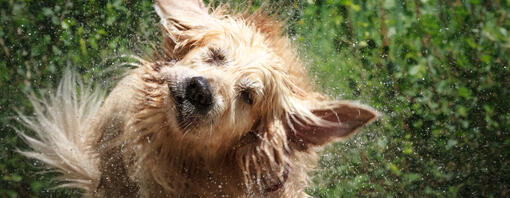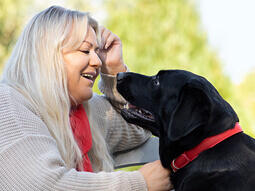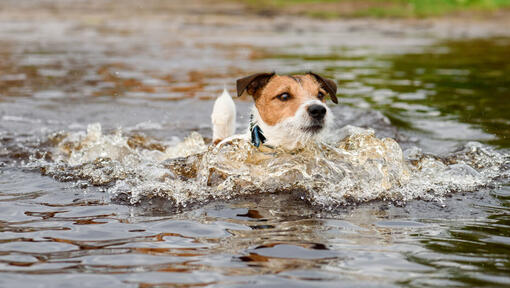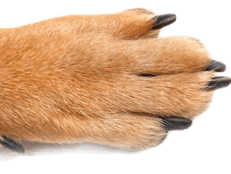
We all notice our dogs shaking when they get wet, but did you know that there are numerous other reasons to the questions ‘why is my dog shaking’ and ‘why do dogs tremble?’. Discover the reasons behind dog trembling and dog shaking with our guide.
Dogs seem to be masters at knowing how we’re feeling. They can tell if we’re happy or sad by a simple change in the tone of our voice or an adjustment of our body language. However, we often find it hard to interpret how dogs are feeling and we can feel at a loss as to how we can help them.
One thing in particular that’s difficult to decipher is when your dog trembles or shakes. Dog trembling can be due to numerous factors, including everything from excitement to something more serious such as sickness.
We’ve put together this handy guide to help you discover why do dogs shake and tremble, and why it seems more common in smaller breeds like Chihuahuas.
Why do dogs shake?
If you’re wondering ‘why is my dog shaking?’, you should know that dogs trembling and shaking isn’t uncommon and there are lots of reasons, like excitement or trying to dry themselves. Often, you need to look at the context to figure out exactly why your dog is shaking. Here’s the top reasons behind shaking in dogs:
1. Shaking off excess water
If your dog has just been for a swim or has gotten wet out on their walk, they’ll shake themselves to get rid of the excess water. In this case, shaking is completely normal and is actually good for your dog as it can help to prevent hypothermia.
They can remove up to 70 percent of the water from their fur just by shaking – which is why you’ll end up soaking wet if you’re in the splash zone.
2. Stress or fear
Do dogs shake when scared? Yes - dogs may also shake due to stress or fear, which is most commonly seen at the vets or when fireworks are going off. Dog trembling may also be paired with signs like whining, whimpering, growling, panting and they may pin their ears back and hide.
If they seem anxious quite often, it’s a good idea to monitor any possible triggers that make them feel that way. Then, if possible, remove these triggers from their lives, or consider enlisting the help of a dog behaviourist. If you need more information on helping a dog with fear or anxiety, take a look at our guide.
3. Excitement
One of the possible reasons why a dog keep shaking is excitement. Your dog shaking can happen when they’re playing with you, if you’ve just got home and they’re happy to see you or if you’re just about to go for a walk. When dogs shake due to excitement it helps to lower their excess energy and keep them more contained. Most commonly it’s seen in younger dogs as they tend to have weaker impulse control, and it’s usually a good idea to pay less attention to them until they calm down, then reward them with a calm stroke.
4. Cold
In a similar way to how we shiver when we’re cold, dogs also do this. Some breeds are more sensitive to the cold than others, particularly if they’re smaller or have a thinner coat, as they have less protection from the elements. If the cold really seems to bother them, invest in a coat and maybe even a pair of booties to keep them toasty during the winter.
If your dog seems to be shivering for a long period of time, take them to the vet as it could be a sign that your dog has hypothermia.
5. Old age
Sometimes dog trembling is due to old age. It’s not unusual for this to occur as they get older, however sometimes too much shaking could be a sign of pain and in particular joint pain. If this is the case, take them to the vet as soon as possible and they will be able to suggest how best to help your dog.
6. Muscle weakness
Muscle weakness can also be a cause of shaking or trembling. This will usually be displayed as their legs shaking – particularly their rear legs. Generally, this will resolve when they’ve had time to rest, but if this seems to be bothering your dog, take them to your vet and they may suggest exercises to strengthen their muscles, or treatment like massage or hydrotherapy.
7. Chihuahua shaking
Chihuahua shaking is extremely common and they’re one of the breeds that shake and tremble the most. There are numerous reasons why your chihuahua might shake, but one of the main ones is because of their small size.
They usually weigh less than six pounds and are tiny in stature, so they tend to feel the cold more than larger breeds. Additionally, chihuahuas possess a fast metabolism and are high energy, therefore they burn energy faster and lose heater much quicker.
According to a research project by the University of Sydney in 2013, lighter toy breeds are more excitable and hyperactive, therefore more likely to tremble with excitement. Also, they tend to be more prone to issues that cause shaking such as attachment issues, anxiety and fear.
8. Sickness
There’s a wide variety of things that can cause sickness and vomiting in dogs from eating foods that are toxic to dogs to medication. If your dog’s feeling nauseous they may also display signs such as: lip smacking, swallowing, excess salivation, yawning, hiding or listlessness.
9. Canine distemper
A contagious virus that’s most common in puppies who haven’t yet been vaccinated. Other symptoms include coughing, eye and nose discharge and fever. If you suspect your dog has canine distemper, take them to the vet for treatment.
10. Seizures
Your dog may shake, foam at the mouth, collapse or even bite their tongue. Seizures can be treated with medication, so be sure to take your dog to the vet immediately. For more information on dog seizures, read our guide.
11. Generalised terror syndrome
Generalised terror syndrome is also known as steroid responsive tremor syndrome or white shaker dog syndrome and can display as muscle tremors throughout the body. Symptoms tend to begin between 9 months to 2 years and it mostly occurs in smaller dogs such as Maltese’s and West Highland White Terriers, but it can occur in dogs of any size and breed. The causes are unknown but it’s easily treated through corticosteroids.
Why do dogs shake in their sleep?
If you spot your dog shaking whilst they’re sleeping, you may be a little concerned, but don’t fear, this is completely normal. Interestingly, according to Pet MD, this shaking or twitching is due to the fact your pup is actively dreaming! They might be dreaming about having a good play session with their best friend or even chasing the neighbour’s cat and the twitching displayed is simply muscle movement.
When to see a vet about dog shaking
Sometimes, the reasons why your dog is shaking may be down to something more serious. If your dog suddenly starts trembling, shaking or shivering, or if they start displaying other symptoms such as diarrhoea, vomiting or limping, it’s a good idea to take them to your vet right away.
That’s our guide to shaking in dogs! Want to find out more about your dog’s unique behaviour? Find out why dog’s tilt their heads, next.


















